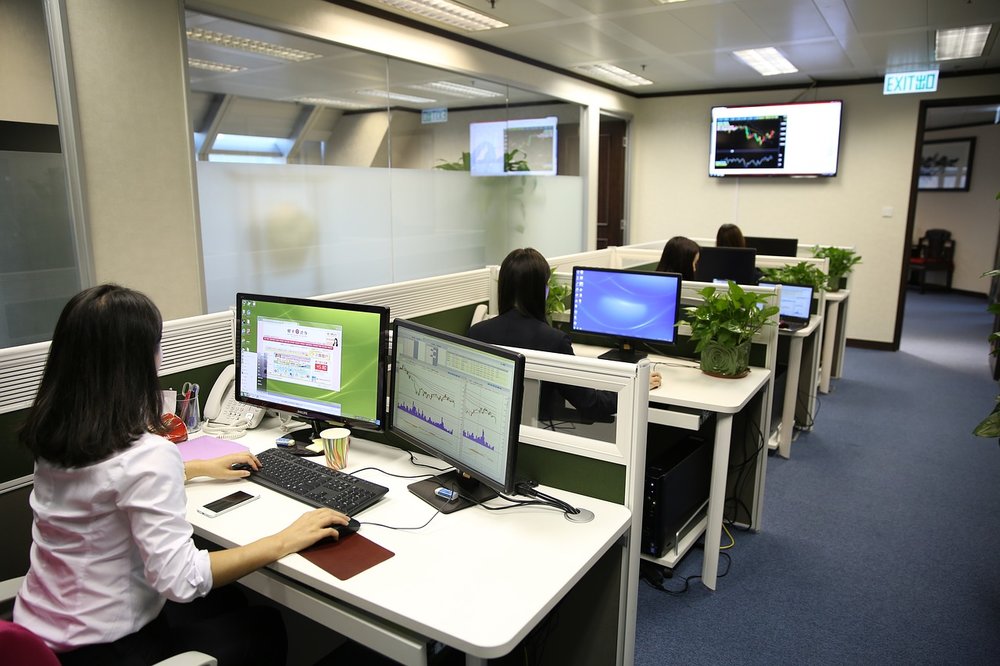New research suggests that the greatest pollutants of office air are humans, who unwittingly carry and disperse unhealthful volatile compounds by wearing deodorant — and even by breathing.
How do humans negatively affect office air quality?
There is a lot of concern about the negative effects of air pollution on health.
Exposure to polluted air can contribute to the development of cancer, lung disease, and even heart disease.
Generally speaking, however, when we think of air pollution, we think primarily of the air we breathe when out on the streets of metropolitan areas.
Yet in the India and elsewhere in the world, people often spend as many as 45 hours per week at work, and many individuals likely spend much — if not most — of that time in an office environment.
Thus, the quality of office air can be just as instrumental in predicting whether or not individuals continue to experience good health. How can we tell if office air quality is adequate, and what are the greatest pollutants of office air?
Humans are ‘dominant source’ of pollutants
“The chemistry of indoor air is dynamic. It changes throughout the day based on outdoor conditions, how the ventilation system operates, and occupancy patterns in the office,” Boor explains.
To find out exactly what affects office air quality and how humans may contribute to indoor air pollution, Boor and colleagues set up a complex sensor system in the shared office spaces at the Living Labs at Purdue University’s Ray W. Herrick Laboratories.
The researchers even added temperature sensors to desk chairs to find out exactly when they were occupied and how human presence may affect air quality in an indoor environment. They also used a highly specialized device called a proton transfer reaction time-of-flight mass spectrometer.
One of the top volatile compounds that reduces air quality is isoprene, a flammable substance present in essential oils. The researchers identified isoprene in the breath of people working in the office.
Another pollutant, called ozone, comes from the outside. However, the researchers explain that once it enters the office environment, it may become even more harmful — in part because of simple human acts, such as peeling an orange.
Ozone, the researchers say, interacts with monoterpenes. These are a class of compounds present in abundance in the peel of oranges and other citrus fruits.
Through this interaction, ozone mixes with the monoterpenes, forming different particles so small that they can penetrate and get stuck deep within lung tissue. This could render them a threat to health.
The researchers also add that volatile chemicals present in deodorant, makeup, and hair care products could equally affect office air quality and the quality of air outside the office. This is because ventilation systems extract them and eject them outside.
Conclusion :
To reduce the effect of work and other chemicals that we consume we need to start using organic products and Air flow products that can provide fresh air & ventilation
Story Source:
Materials provided by Purdue University. Original written by Kayla Wiles. Note: Content may be edited for style and length.


